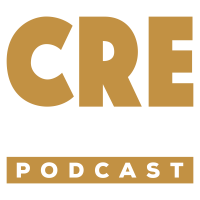
In this episode, Jeremy interviews Mark Kelwaski, one of Jeremy’s favorite investors and an incredibly rich source of REI info. We zoom in on his detailed approach to a smart proforma.
Download Marc’s Monopoly cards HERE
How He Got His Investing Start
Mark originally began investing after being inspired by his wife’s grandparents, who made a living in the investing market. Mark and his wife bought their initial property, a townhouse, in the Bloomington area where they currently lived. Although they started small, Mark’s expertise allowed him and his wife to build up to 130 unit investments over five years. To say that they experienced phenomenal success is an understatement.
How Kelwaski Reached 130 Units in Record Time
Of course, Mark’s success wasn’t just the result of luck. Many things influenced how he made property buying decisions and how he ran his businesses.
Look for the Value You Can Add to a Property’s Existing Value
For starters, Mark stresses the importance of always looking for value that you, the investor, can add to the value already existing with a given property. As an example, he tends to look for properties that are not only already generating cash, but also properties where he can improve things to get an even greater return. It’s not quite the same thing as flipping, where you buy subpar properties and make them desirable again for a potentially great return.
Instead, Mark looks for synergy; he tries to figure out what operating mechanisms he has that can produce more cash for a given property, provided that he applies the right knowledge and resources to the unit in question.
He also stresses the importance of doing some fixup work yourself, especially in the beginning. He managed to keep several percentage points of his revenue in his own pocket while making properties more desirable in the long run.
Bring on a Property Manager
Mark didn’t go it alone for long. After purchasing his first multifamily property, he decided it was time to hire a property manager. Even though he gained lots of experience managing his properties himself, he knew that the benefits would outweigh the costs.
Specifically, Mark found that he needed more time for other aspects of running his businesses. So a property manager became a necessity instead of a luxury.
Property Managers Make Sense When You See Better Returns
Of course, many new investors hesitate to bring on property managers because they don’t want to lose some of their overall returns. Yet Mark found that property managers made a lot of sense for his businesses as he saw better returns. As he purchased and managed larger units and multifamily units, he eventually freed up enough income to contract for different services.
This, in turn, freed up more time and money for him to pick up new properties and add to his overall portfolios. In time, his returns increased exponentially, even when hiring a property manager. In this way, he shows the value of waiting until the right moment to hire a property manager, but not hesitating to pull the trigger when it is the right time.
Mentors and Advisors
Mark also shares some advice relating to mentors and advisors, which is valuable since many property investors start out on their own.
As he learned the ropes, Mark reached out to other property owners and his wife’s family in particular, as they had significant experience in the real estate investing market. Mark stresses the importance of having a few advisors and mentors. They can point you in the right direction or prevent you from making simple mistakes.
Mark also has a dedicated team that he trusts for day-to-day operations. As his businesses have grown, so too has his investment network. Now he has a collection of people he can call upon for advice whenever he needs.
Friendly Competition
Interestingly, Mark notes that, because there’s always enough investment opportunity to go around, it’s easy to ask for advice or mentorship from fellow real estate investors. Trading strategies or success tips with one another can be invaluable and help build a better investing community as a whole.
Experience Adds To – and Even Slightly Trumps – Education
While mentors and advisors were important, Mark also found that his experience in the pharmaceutical industry played an unexpected role in his real estate investment success. He worked in the industry for 15 years before breaking into real estate investing. Over those years, he negotiated several multimillion-dollar contracts and interacted with customers of all types. These soft social skills ended up being huge benefits when he needed to negotiate with buyers and sellers in the real estate investing sphere.
This being said, Mark also notes that education only gets you so far. He says that there’s no replacement for actually experiencing your first multiunit purchase. He’s learned a lot from every property he’s acquired and all the time he spent talking with various sellers.
He dove deep into a specific example where he met a seller who was looking to sunset his property. He had to navigate a potentially difficult purchase where the home didn’t have flood insurance – and the owner wasn’t even aware!
Pro Forma – How to Measure a Property’s Output
Mark detailed his pro forma strategy, or the way in which he was able to consistently and accurately measure the potential output of a property he wanted to buy.
For Mark, the best process would have him:
- ● look at the past history of the property
- ● determine what he felt the property would look like in the future in terms of income and expenses
- ● see what other details might factor into the overall cap rate, price, etc.
In fact, Mark made heavy use of spreadsheets in order to look at the raw numbers for every potential property he considered. He states that it helped him take the emotion out of various properties, which resulted in better purchasing decisions. To this end, he also built his own pro forma tool instead of using one that he could’ve found on Google.
Building Relationships with Sellers is Key for Accuracy
Determining whether the numbers that a seller puts up for a property are accurate is one of the trickiest-to-navigate aspects of any real estate deal. For Mark, the best results came from building relationships with those sellers and asking for actuals. In some cases, full disclosures are present from the get-go. But in many other cases, Mark found that he needed to look for other numbers or actuals from the past.
He was able to get those actuals because of his friendly demeanor and the effort he put forward into building an actual relationship with the sellers of his potential properties. This way, he could ensure that both parties got a profitable deal from the exchange.
Do Your Due Diligence When Finding Properties to Pursue
Mark did and still does use “Monopoly cards” – these are small cards he uses for his pro forma notes. He writes down all the details of a potential property so he can check numbers when he gets back home. It’s this due diligence and attention to detail that has resulted in a phenomenal portfolio after just a few short years of investing.
He also practices this due diligence when he’s asking specific questions to his sellers. For instance, he’ll ask for actuals from the past 12 months, or he’ll ask for repair histories and more. The point, he says, is to be detailed in your investigation so you’re always getting a great deal. You’ll often have to dig for the information you need for yourself, although it’s not always out of some scheme to cheat you. Sometimes sellers just don’t know what you need.
Repairs Are Especially Important On Pro Formas
Within his pro forma process, Mark has always paid special attention to repairs. He lumps all of his repairs together to bring all potential costs to a single number. In his mind, properties that have lower repairs mean more profits over time since there’s less money that has to come out of his pocket. Still, due diligence is important – for instance, he says, what if the lack of repairs is because of deferred maintenance?
As an example, Mark detailed a story where one of his properties had a furnace that was barely working. The former owners hadn’t fixed the item, so it ended up costing more in the long run.
Know What Other Units Are Renting For
Another big thing that Mark does to ensure overall profits is always be checking various online resources like Zillow or apartments.com to see what other properties in the area are renting for. This is one of the ways in which he keeps his own rental rates competitive and profitable.
Walk the Neighborhood
Mark also shares that he will frequently walk around in a neighborhood to do some rental price scouting. He finds that even asking people what they pay for their rent often provides actionable information that he can use as data points for his own purposes.
Furthermore, putting his “boots on the ground” allows him to scout out new potential investment opportunities without being limited by a computer screen.
Three Steps to Clarity – Mark Kawasaki
Each episode of REI Clarity features three steps that the guest might use to better their investment success. Here are Mark’s.
Solid Deal Analysis – Know What You’re Getting Into
The first thing Mark recommends for better investment clarity is solid, consistent deal analysis. He stresses the importance of always understanding what kind of deal you’re making and what financial agreement you’re getting into. Mark is decisive himself, so he’s never had an issue pulling the trigger on a deal that he felt good about. But ultimately, he implores the listener to get all their details down so they know if and when to make a buying decision.
Defined Operating Mechanisms – Have Good Workflows in Place
The next tip relates to how you run your business. Mark stresses the importance of having excellent workflows or “operating mechanisms”, especially as your business and portfolio grows. It’s critical that you know how your work orders will be handled, how your rent will be increased annually, who’s in charge of handling property taxes, and so on. Even if it’s all done by you, you should still be aware of how work gets done and who’s in charge of each task.
Build a Network – Know the People
Lastly, Mark states that building a network is easily just as important as any other part of the investing process. Networks help you find buyers and sellers, particularly the latter. To Mark, it’s much more common (and enjoyable) to get a potential lead on a deal just from networking and telling people what he does. Like the old saying advises, network, network, network!
Last Thoughts
The episode wraps up with a final message from Mark: always feel free to reach out and ask for assistance. The resources you can find for real estate investing are vast and helpful. We’re all here to build up passive income and pass on wealth to future generations, and we can do that together by supporting one another.
Mentioned In The Episode
If you enjoyed this podcast, there’s a couple of things we need you to do right now:
- ● SUBSCRIBE to Scratch Entrepreneur on Spotify, Apple Podcast, Stitcher, or wherever you listen to podcasts
- ● While you’re there, please REVIEW the show
- ● SHARE with friends
- ● Finally, please JOIN the Scratch Entrepreneur Facebook Group
Then, please share the show with whatever you think it will inspire. Until the next time, we truly appreciate you listening!

